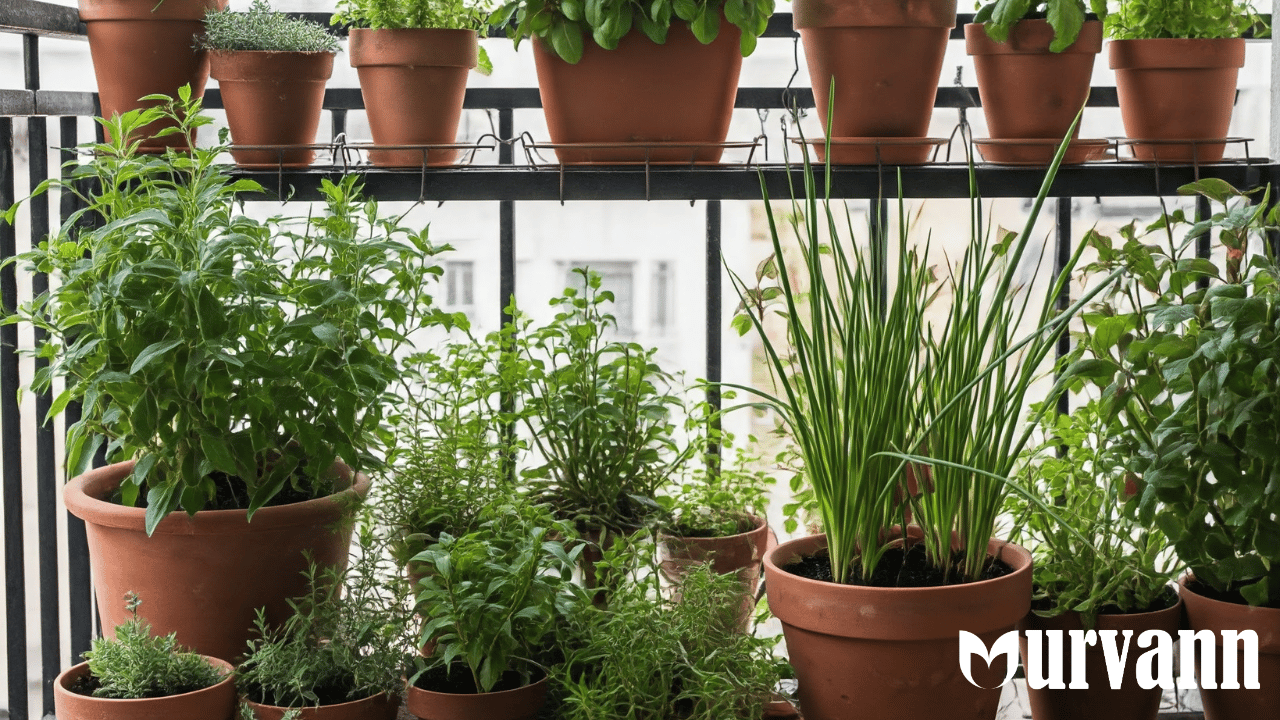Living in Mumbai has taught me one important lesson about gardening: it's all about finding the right plants that can handle our unique, tropical weather. As someone who has spent years experimenting with different plants on my balcony, office space, and living room, I can honestly say that gardening in Mumbai is both exciting and challenging.
Our coastal city throws everything at us – from scorching summers to heavy monsoons. However, I've discovered that with the right plant choices, you can create a beautiful green space that thrives throughout the year.
You could be looking for the best indoor plants for Mumbai to brighten up your apartment or searching for the best outdoor plants for Mumbai to freshen up your balcony- this guide will help you make the perfect choices.
Understanding Mumbai's Unique Climate
Before we explore the best plants for Mumbai weather, let's understand what makes our city's climate so special. Mumbai experiences high humidity levels that often reach 80-90% during the monsoon season. Additionally, our temperatures tend to range from 24°C to 35°C throughout the year.
The monsoon season, which lasts from June to September, brings intense rainfall that can be both a blessing and a challenge for plant lovers. Furthermore, the coastal location means we deal with salty air and strong winds during certain times of the year.
Here's the good news: many plants absolutely love Mumbai's humid conditions! However, the challenge lies in managing drainage and preventing fungal issues, especially during the wet months.
Top 15 Best Plants for Mumbai Weather
Indoor Plants That Love Mumbai's Humid Climate
1. Snake Plant (Sansevieria)
If you're new to gardening in Mumbai, the snake plant should be your first choice. This remarkable plant is practically indestructible and perfectly suited for our humid conditions. Moreover, it tolerates low-light situations and requires minimal watering to grow.
What makes it even better is its air-purifying qualities. The snake plant removes harmful toxins like formaldehyde and benzene from your indoor air. Needless to say, I have had mine survive countless periods of neglect, and it still looks fantastic!
Care tip: Water only when the soil feels completely dry to touch. Remember, overwatering is the only thing that can harm this tough plant.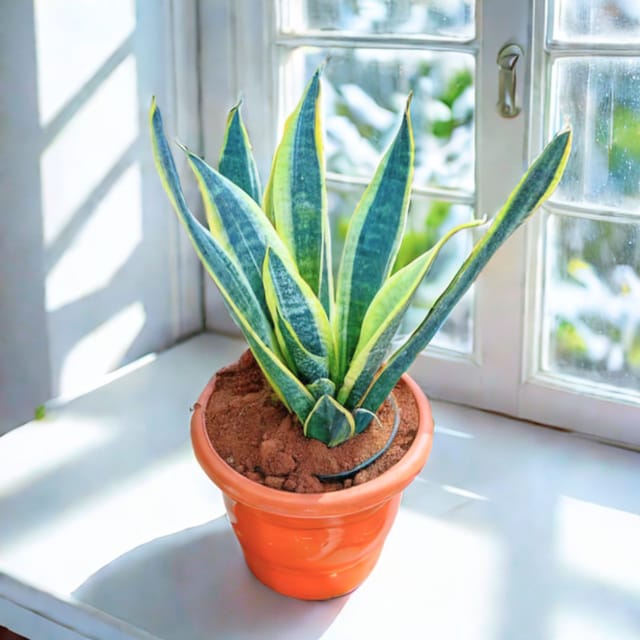
2. Money Plant (Pothos)
Every Mumbai home deserves a money plant! This beautiful trailing plant adapts incredibly well to our weather conditions. Not only can it grow in both water and soil, but it's also believed to bring good luck and prosperity to your home.
Additionally, the money plant excels at purifying indoor air, making it perfect for our sometimes polluted city environment. Its heart-shaped leaves add a lovely touch of green to any corner of your home.
Care tip: This plant thrives in indirect light and actually loves the humidity in your bathroom.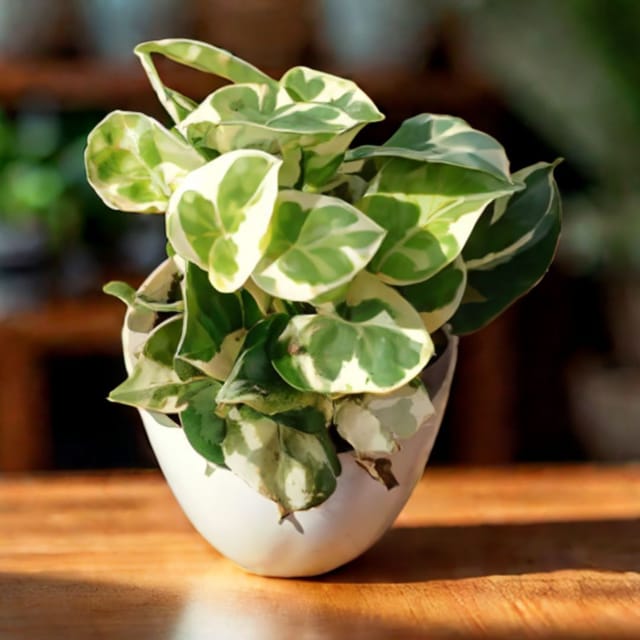
3. Spider Plant (Chlorophytum comosum)
The spider plant is truly a champion when it comes to air purification. Furthermore, it adapts beautifully to Mumbai's varying light conditions throughout the day. One of my favorite features is how it produces adorable baby plants that you can easily propagate and share with friends.
This plant is also incredibly forgiving if you occasionally forget to water it. However, it responds beautifully to consistent care and will reward you with lush, green foliage.
Care tip: Keep the soil slightly moist but ensure good drainage, especially during our heavy monsoon season.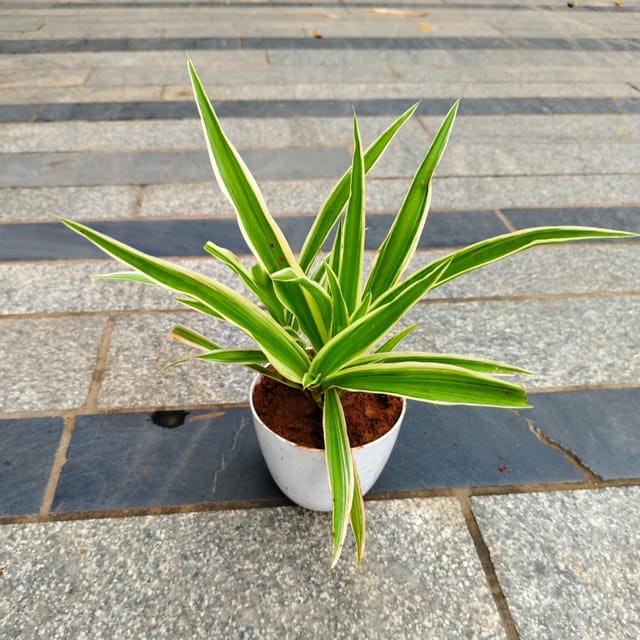
4. Peace Lily
For those who love flowering plants indoors, the peace lily is absolutely perfect. This elegant plant not only loves Mumbai's humidity but can actually bloom indoors with proper care. The pristine white flowers create a beautiful contrast against the dark green leaves.
Moreover, peace lilies are excellent at removing indoor air toxins, making them both beautiful and functional. They're also quite dramatic – when they need water, they'll droop noticeably, giving you a clear signal that they require care and nourishment.
Care tip: Watch for the dramatic drooping when it's thirsty – it's like having a built-in watering reminder!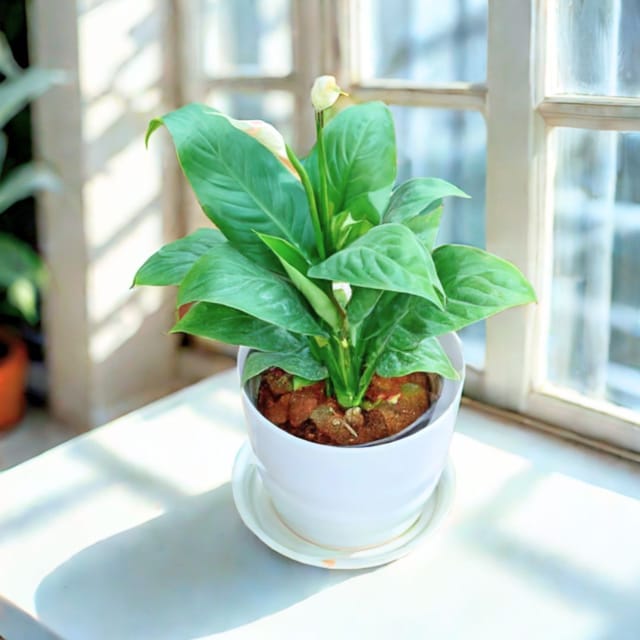
5. Areca Palm
If you want to create that tropical resort feeling in your Mumbai home, the areca palm is your perfect choice. This graceful palm acts as a natural humidifier, which works wonderfully with our coastal climate.
The feathery fronds add instant elegance to any space, be it your living room or bedroom. Furthermore, areca palms are known for their air-purifying qualities and their ability to increase indoor humidity levels naturally.
Care tip: Mist the leaves occasionally and always ensure the pot has proper drainage holes.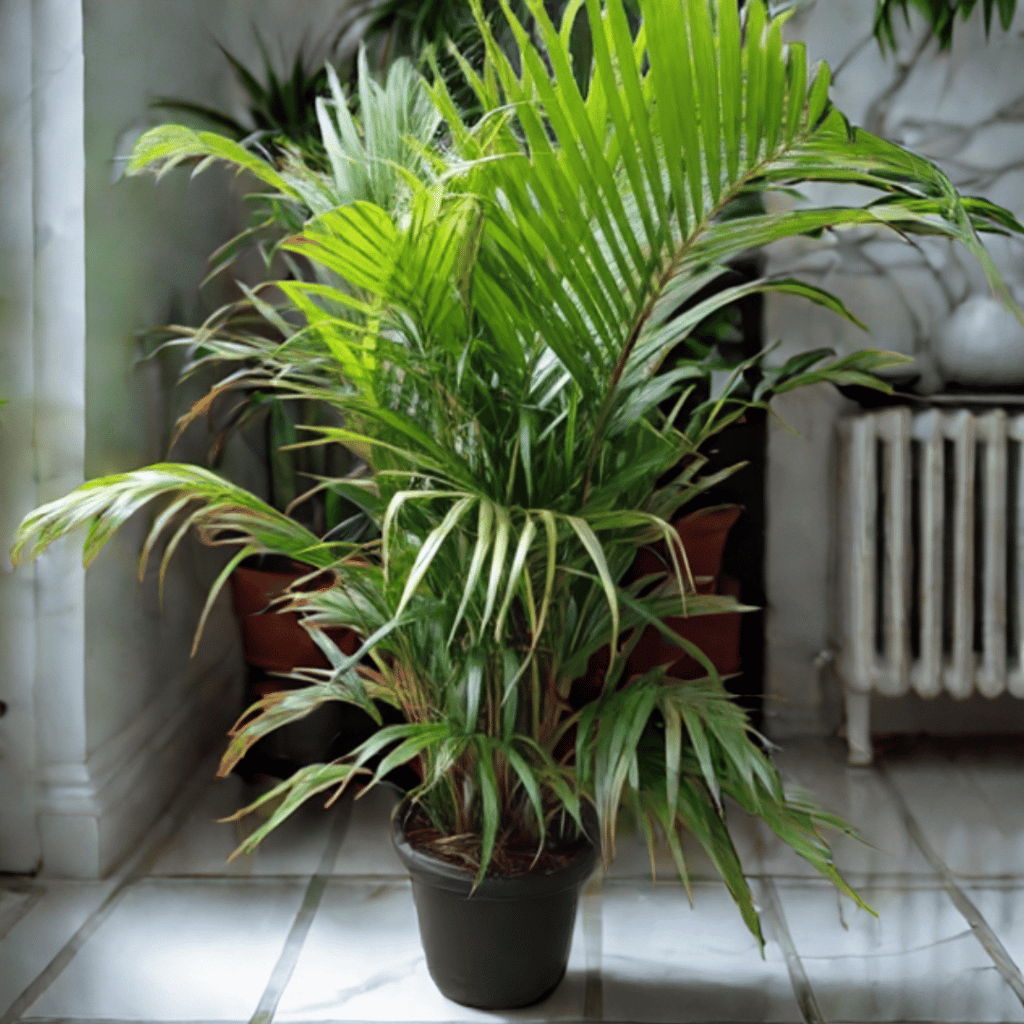
6. Rubber Plant (Ficus elastica)
The rubber plant has become incredibly popular among Mumbai plant parents, and for good reason. Its glossy, dark green leaves make a bold statement in any room. Furthermore, it adapts well to indoor conditions and can grow quite tall if you let it.
This plant is also relatively low-maintenance once established. However, it does appreciate bright, indirect light and regular cleaning of its beautiful leaves.
Care tip: Place it near a window for bright, indirect light, and wipe the leaves regularly to keep them dust-free and shiny.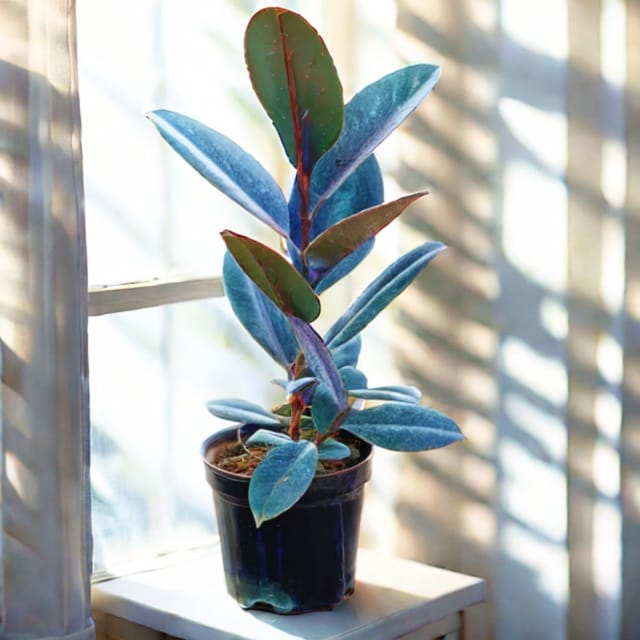
7. Jade Plant
Perfect for busy Mumbaikars who travel frequently, the jade plant is incredibly drought-tolerant. This succulent stores water in its thick, coin-shaped leaves, making it ideal for people with unpredictable schedules.
In addition to being low-maintenance, jade plants are believed to bring prosperity and good fortune. They're also very easy to propagate, so you can create new plants from cuttings.
Care tip: Water only when the soil is completely dry – this plant actually prefers being slightly neglected over being pampered!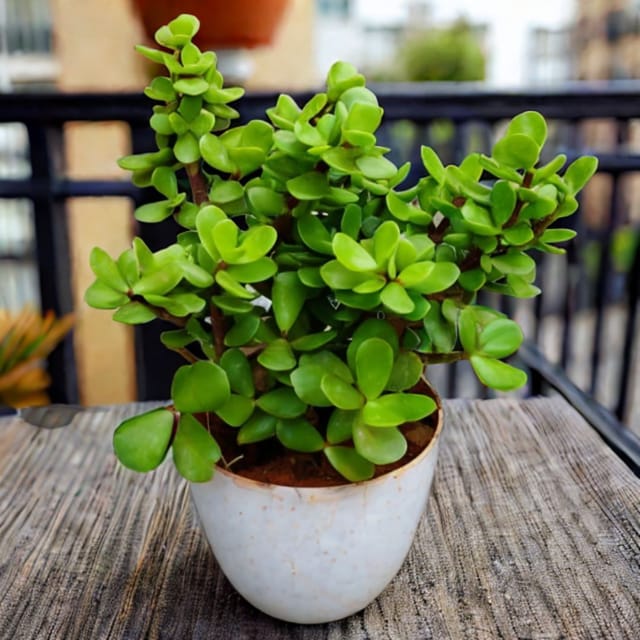
Outdoor Plants Perfect for Mumbai Balconies and Gardens
1. Hibiscus
Nothing captures the tropical spirit of Mumbai quite like lively hibiscus blooms. These stunning flowers come in various colours and can flower almost year-round in Mumbai’s climate. Moreover, they are very easy to care for once established.
Hibiscus plants love our humid conditions and respond well to regular watering during the dry months. They also attract beautiful butterflies, adding even more life to your garden space.
Care tip: Prune your hibiscus plants at the beginning of monsoon season to encourage more blooms and prevent fungal issues.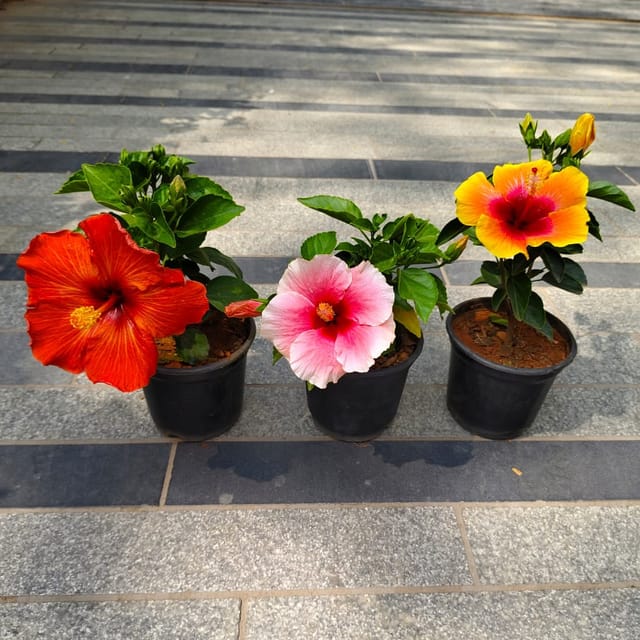
2. Bougainvillea
For dramatic colour and resilience that could give you a run for your money, bougainvillea is simply unbeatable. These hardy climbing plants produce papery, colourful bracts that last for months. Once established, they're quite drought-tolerant, making them perfect for Mumbai's varying weather conditions.
Furthermore, bougainvillea comes in many hues and colours including pink, purple, orange, and white. They can absolutely turn any plain wall or balcony railing into a spectacular display.
Care tip: Provide full sun exposure and ensure well-draining soil. Interestingly, slight stress actually encourages more flowering!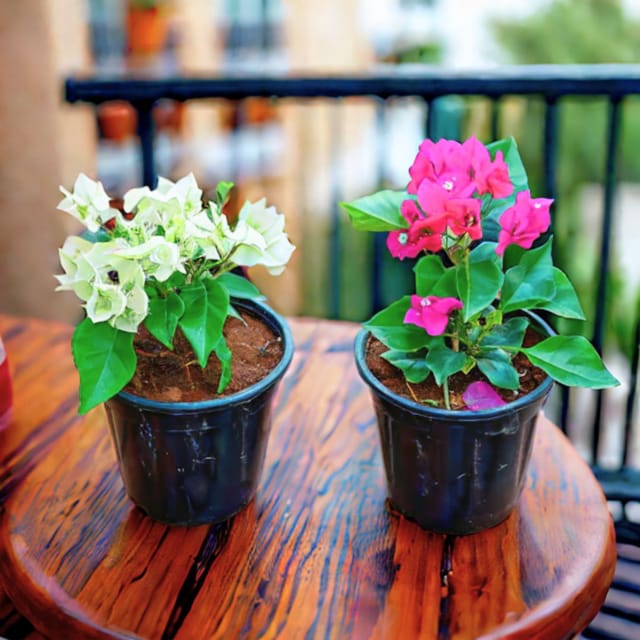
3. Mogra (Arabian Jasmine)
The intoxicating fragrance of mogra flowers is pure magic, especially during Mumbai's pleasant evening hours. These small, white blooms have been traditionally used for making garlands and have incredible staying power.
Additionally, mogra plants are relatively compact, making them perfect for balcony gardens. The fragrance is strongest in the evening, creating a naturally perfumed outdoor space.
Care tip: Provide a small trellis or support for the plant, and ensure good air circulation to prevent fungal problems during monsoons.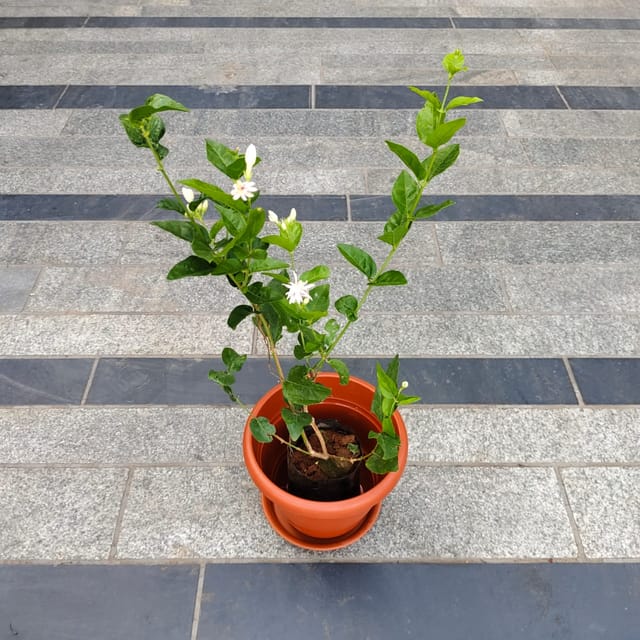
11. Tulsi (Holy Basil)
Tulsi is not just spiritually significant; it's also incredibly practical for Mumbai gardens. This aromatic plant has natural mosquito-repelling properties, which is a huge advantage during our humid months. Moreover, it has numerous medicinal benefits.
The plant is relatively easy to grow and doesn't require too much space. Fresh tulsi leaves can be used for tea, cooking, and traditional remedies.
Care tip: Pinch off flower buds to encourage leafy growth, and provide at least 4 to 6 hours of sunlight daily.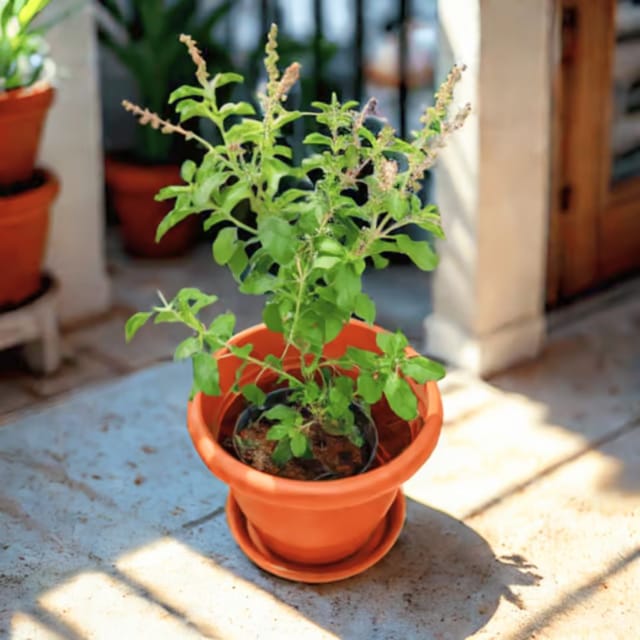
12. Marigold (Genda)
These cheerful orange and yellow flowers bring instant joy to any garden space. Marigolds are naturally pest-resistant and bloom profusely during Mumbai's cooler months. They're also excellent companion plants for vegetables if you are planning a kitchen garden.
Furthermore, marigolds are quite affordable and easy to grow from seeds. They have the power to brighten your garden with hues of yellow, red, and orange throughout the growing season with simple care requirements.
Care tip: Remove spent blooms regularly to encourage continuous flowering, and ensure good drainage during monsoon season.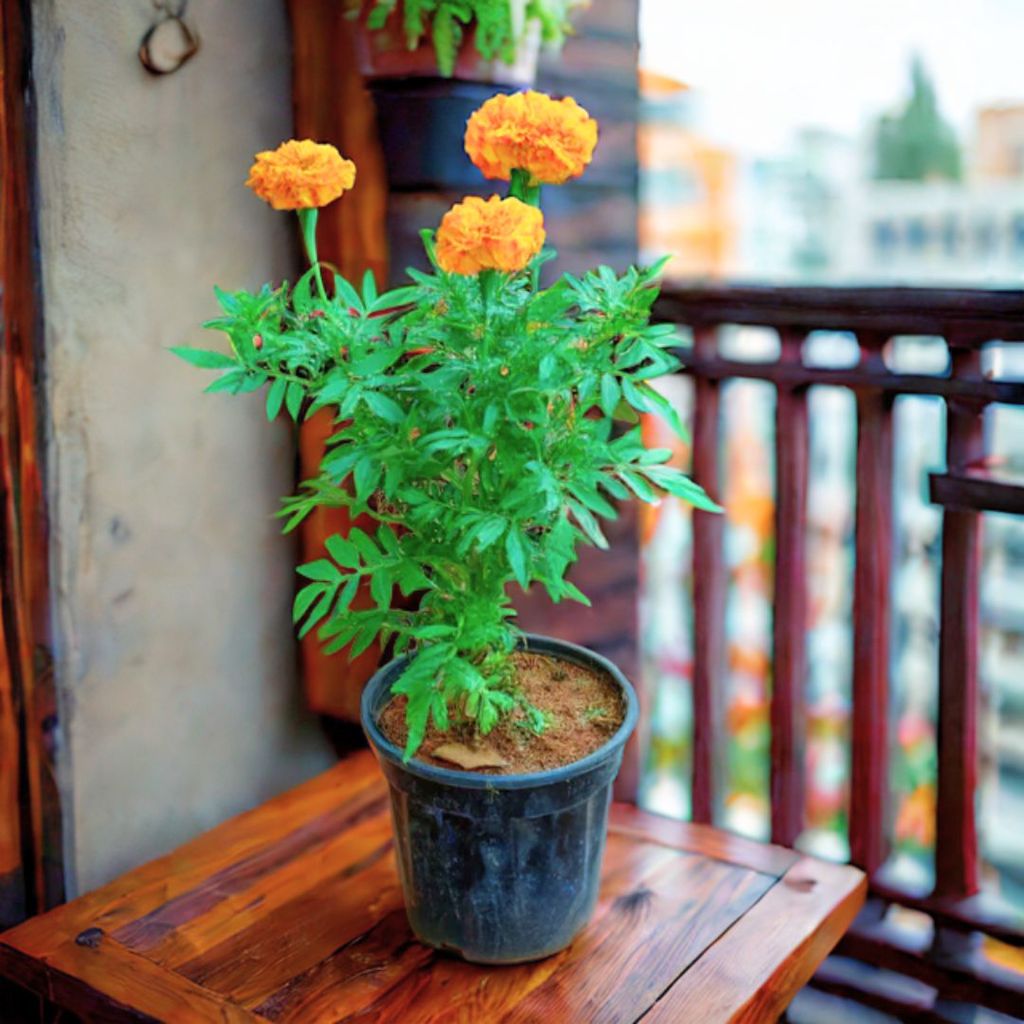
13. Neem Tree
If you have sufficient space, a neem tree is an invaluable addition to your Mumbai garden. This powerhouse plant offers numerous health benefits and acts as a natural pest control system. Young neem trees can be grown successfully in large containers.
Moreover, neem leaves, bark, and oil have various medicinal and practical uses. The tree also provides excellent shade once it matures.
Care tip: Water regularly when the tree is young, but mature neem trees become quite drought-tolerant and low-maintenance.
14. Curry Leaf Plant (Kadi Patta)
Having fresh curry leaves at your fingertips is every Mumbai cook's dream! This aromatic plant loves our climate and provides a steady supply of fresh, flavorful leaves for your kitchen.
To add on, curry leaf plants are relatively compact and can be grown successfully in medium-sized containers. The fresh leaves are far superior to dried ones in terms of flavor and aroma.
Care tip: Harvest leaves regularly to encourage new growth, and protect the plant from strong monsoon winds with proper placement.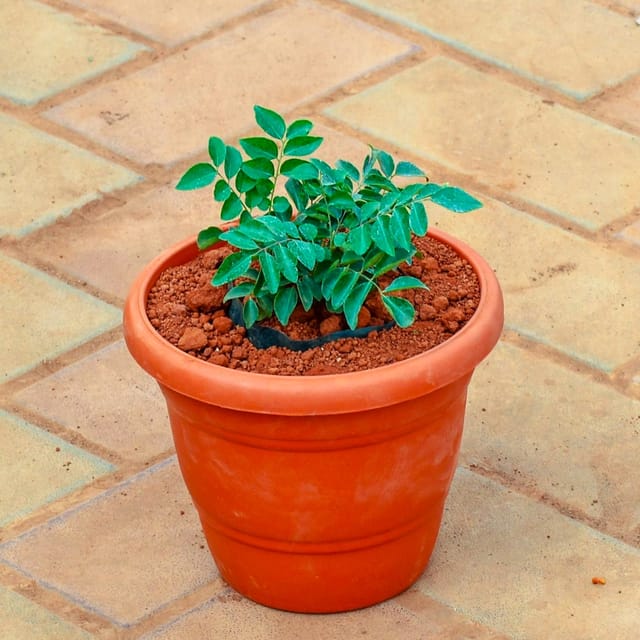
15. Ficus Bonsai
For those interested in the art of bonsai, ficus varieties work exceptionally well in Mumbai's humid climate. These miniature living sculptures add an element of zen to any balcony or garden space.
Likewise, bonsai plants are conversation starters and can become a deeply rewarding hobby. They require patience and regular care but offer immense satisfaction as they develop their character over time.
Care tip: Regular pruning is essential, and provide bright, indirect light throughout the day for optimal growth.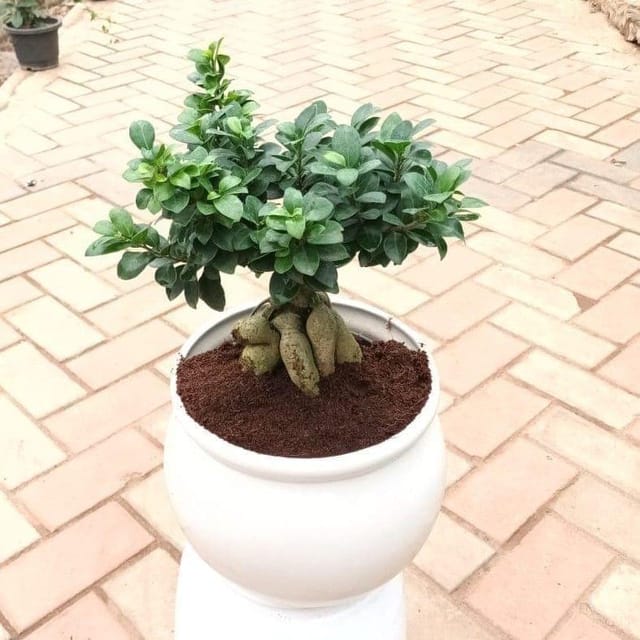
Seasonal Care Tips for Mumbai Plants
Monsoon Season (June–September)
During Mumbai's monsoon months, drainage becomes absolutely critical for plant health. Therefore, ensure all your pots have adequate drainage holes and consider adding gravel at the bottom. Additionally, reduce your regular watering schedule since natural rainfall will take care of most watering needs.
Watch carefully for signs of fungal infections, which are common during this humid period. If you notice any issues, treat them immediately with neem oil spray, which is both effective and natural.
Winter Season (December–February)
Winter is Mumbai's prime growing season when the weather is most pleasant. During this time, you can increase watering frequency as humidity levels naturally drop. This is also the ideal time to introduce new plants to your collection and provide fertilizer to actively growing plants.
Many flowering plants put on their best show during these months, so take advantage of the perfect growing conditions.
Summer Season (March–May)
Mumbai's summer months require special attention to plant care. Therefore, shield your plants from harsh afternoon sun, especially between 12 PM and 4 PM. Increase watering frequency for outdoor plants, and consider misting indoor plants to boost humidity levels.
Interestingly, many flowering plants actually burst into bloom during early summer before the intense heat sets in.
Conclusion
Gardening in Mumbai is truly a rewarding journey- one that is filled with colours, lush greenery, and the satisfaction of watching your plants grow healthily in our unique climate. From the incredibly hardy snake plant to the fragrant mogra, each of these top 15 selections has proven successful in our humid, coastal environment.
Remember to focus on proper drainage during monsoons, provide adequate protection during summer, and take advantage of our perfect winter growing season.
Most importantly, don't be afraid to start small and gradually expand your plant collection. Every plant parent in Mumbai has learned through experience, and each season brings new insights and successes.
Frequently Asked Questions
What plants are most popular in Mumbai?
The most popular plants for Mumbai include the snake plant, money plant, spider plant, and areca palm, all suitable for indoor spaces. For outdoor areas, hibiscus, bougainvillea, mogra, and marigold are the top favourites among local gardeners.
Which plant is best for balcony gardening in Mumbai?
Bougainvillea is often considered the best choice for Mumbai balconies due to its vibrant, long-lasting blooms, excellent drought tolerance, and ability to thrive in full sun conditions. It's also quite hardy and can handle our monsoon seasons well.
What are the best outdoor plants for Mumbai weather?
The best outdoor plants for Mumbai include hibiscus, neem tree, curry leaf plant, marigold, and bougainvillea. These plants are either native to India or tropical species that flourish in our heat, humid, and monsoon conditions.
Which flowers grow well in Mumbai's climate?
Several flowers thrive in Mumbai's weather, including hibiscus, bougainvillea, marigold, mogra (Arabian jasmine), and ixora. These flowers can bloom year-round or seasonally, providing beautiful, long-lasting colour that can withstand our climate conditions.


